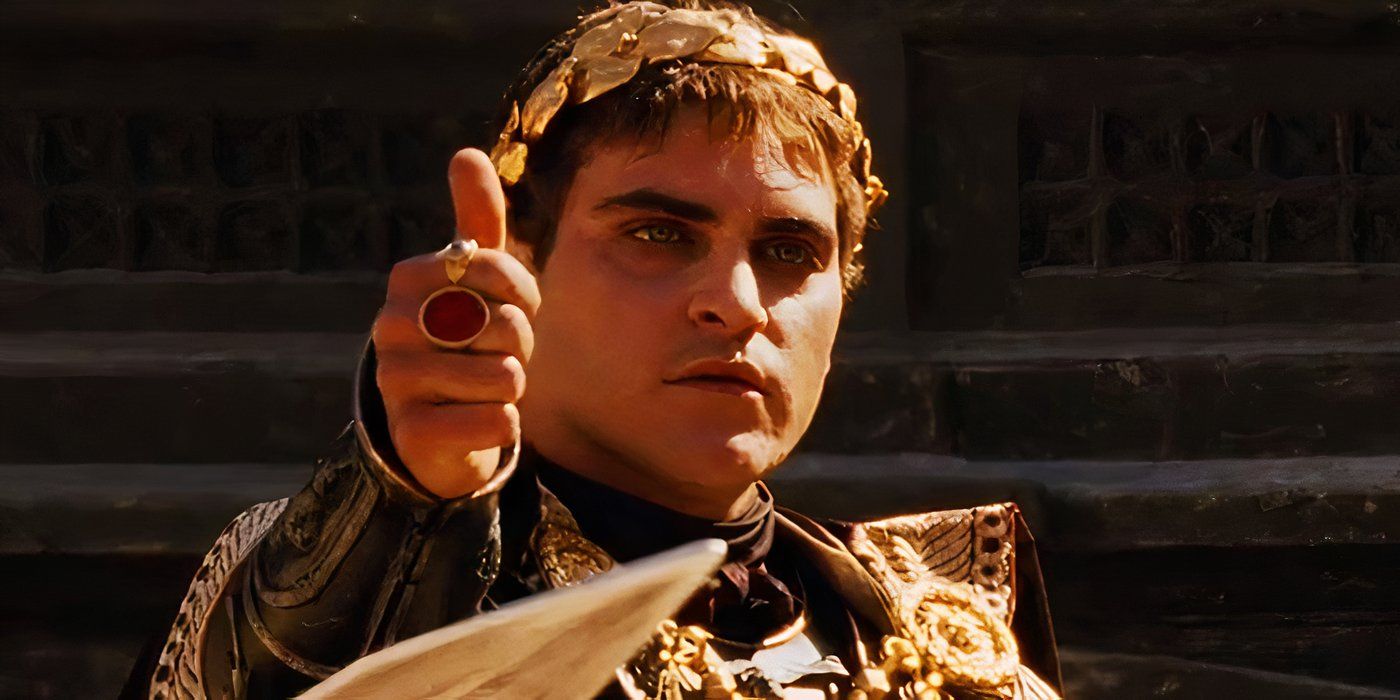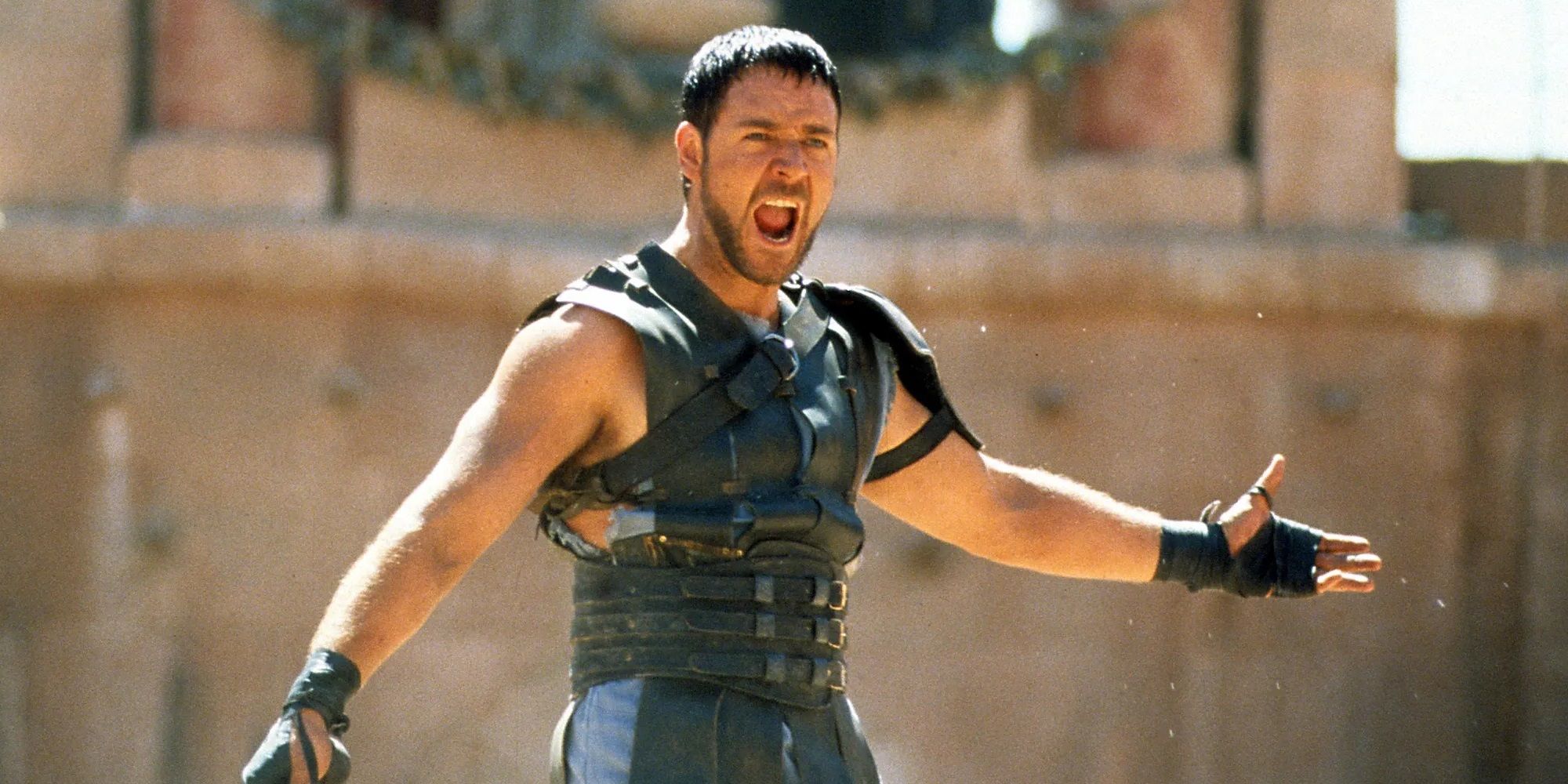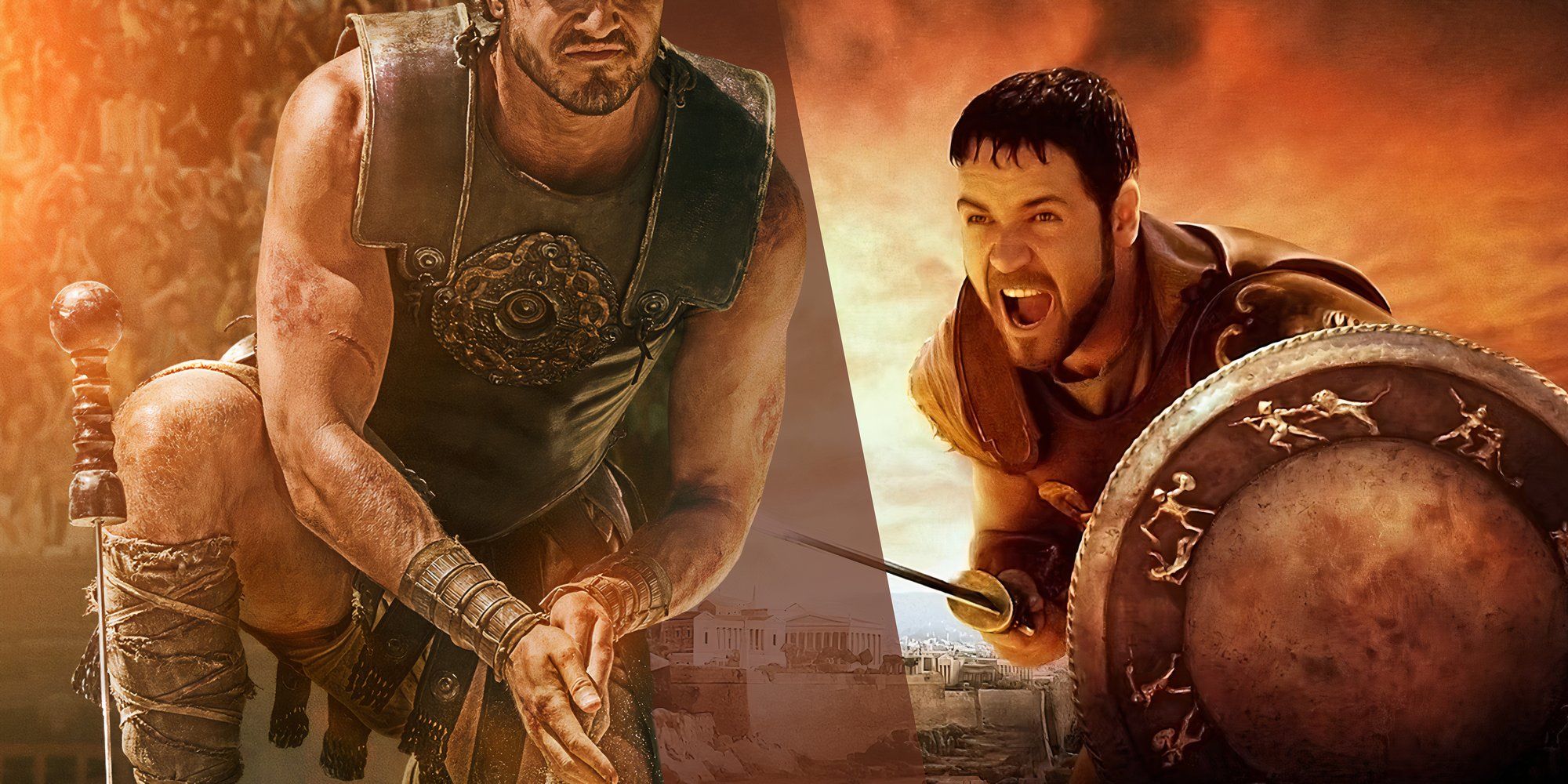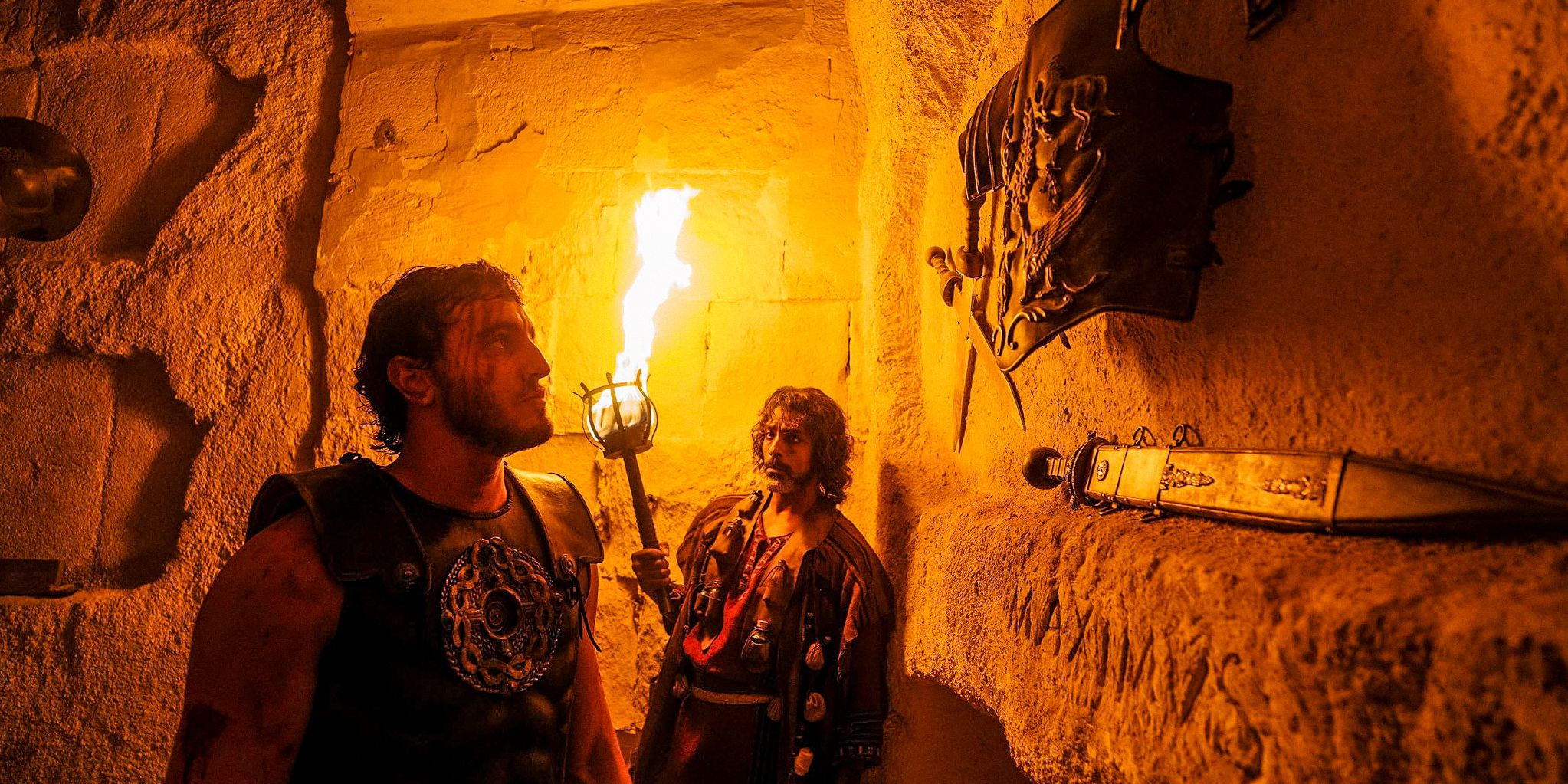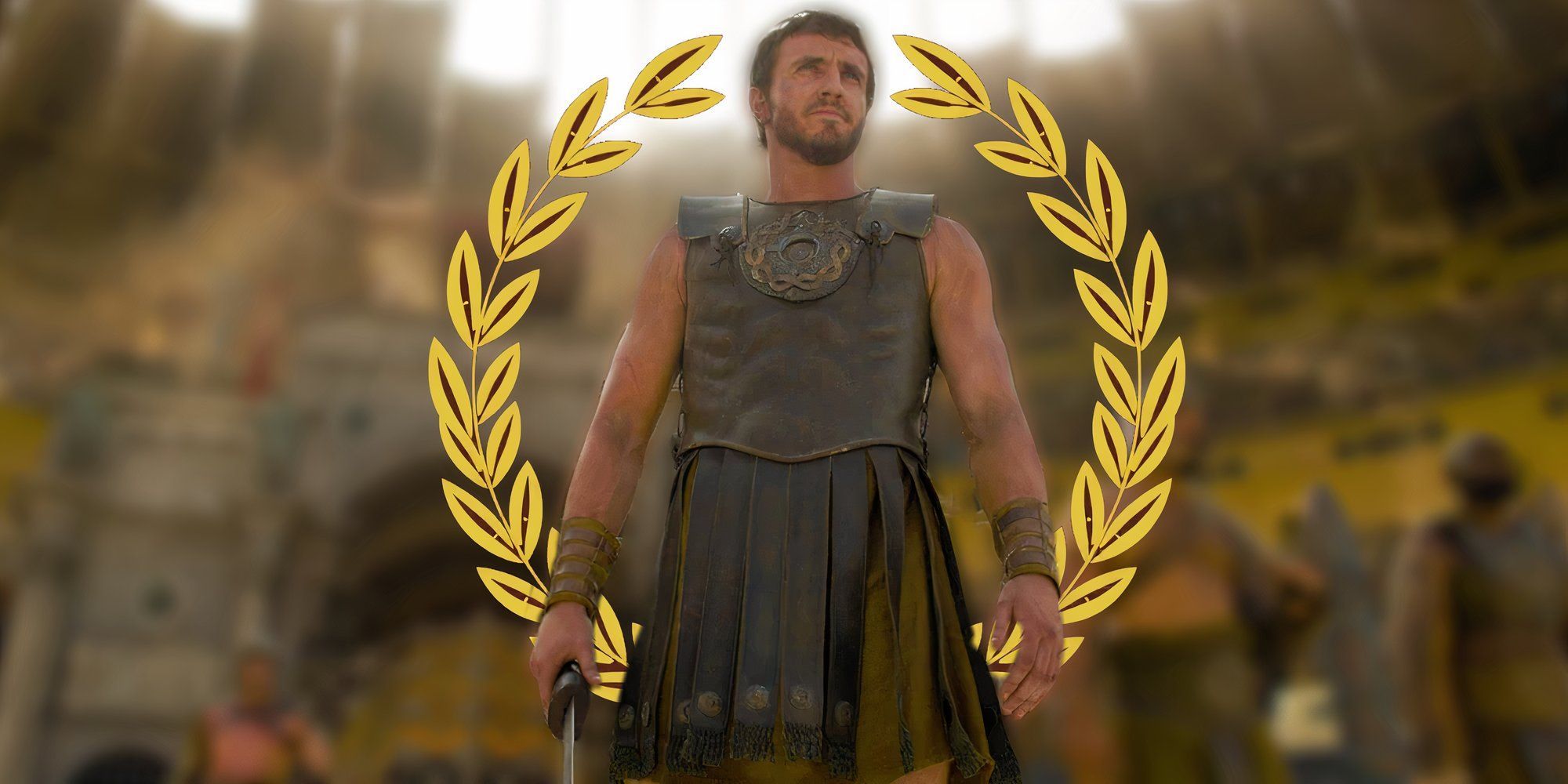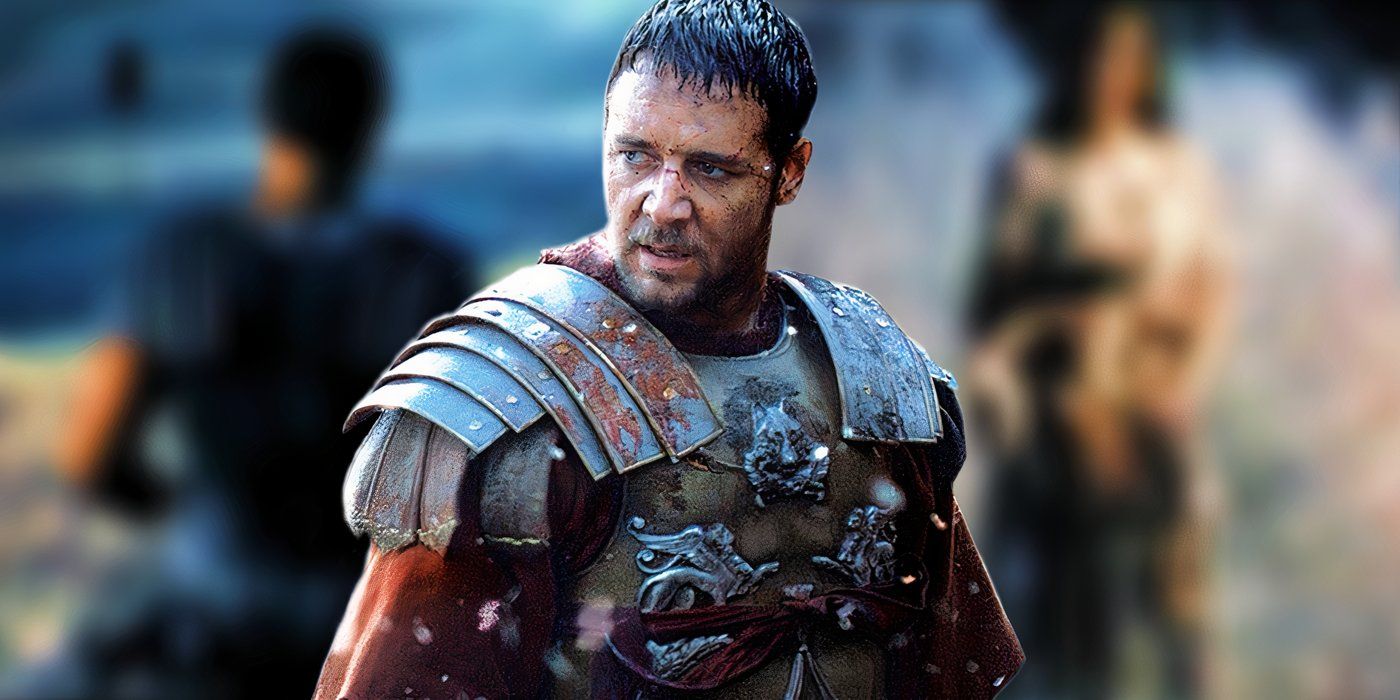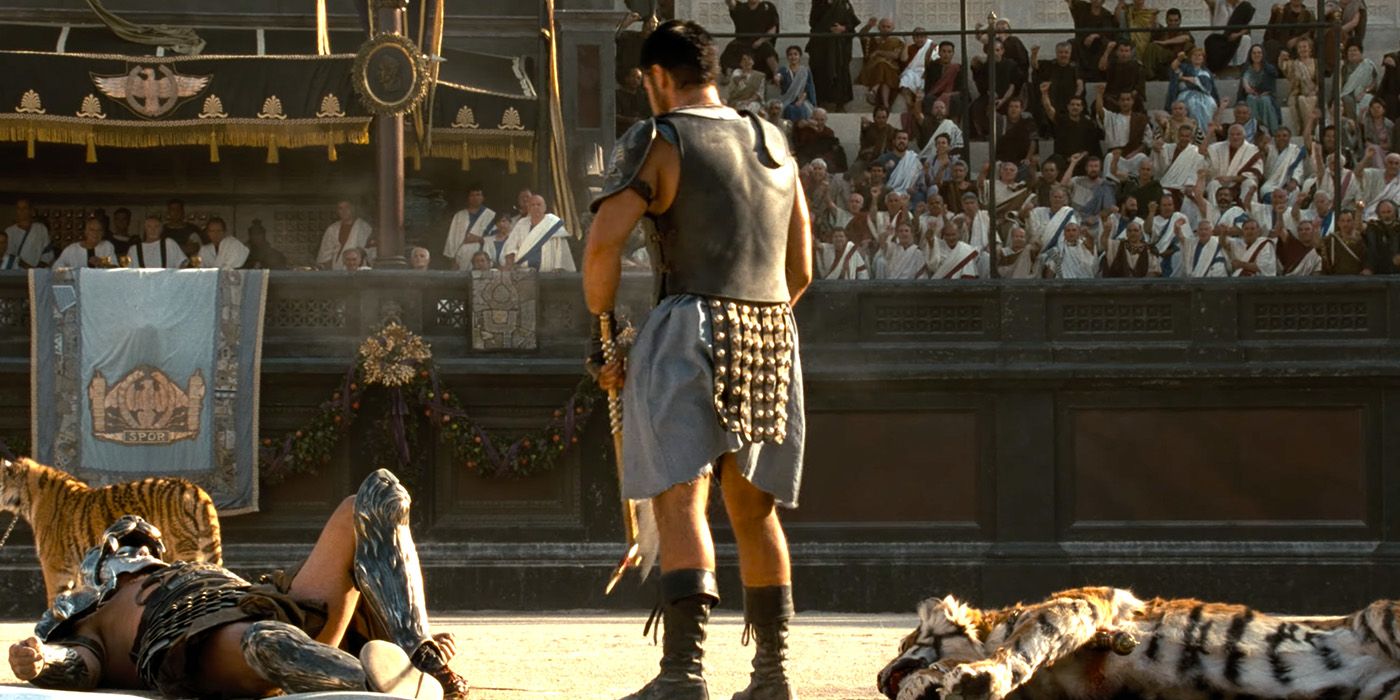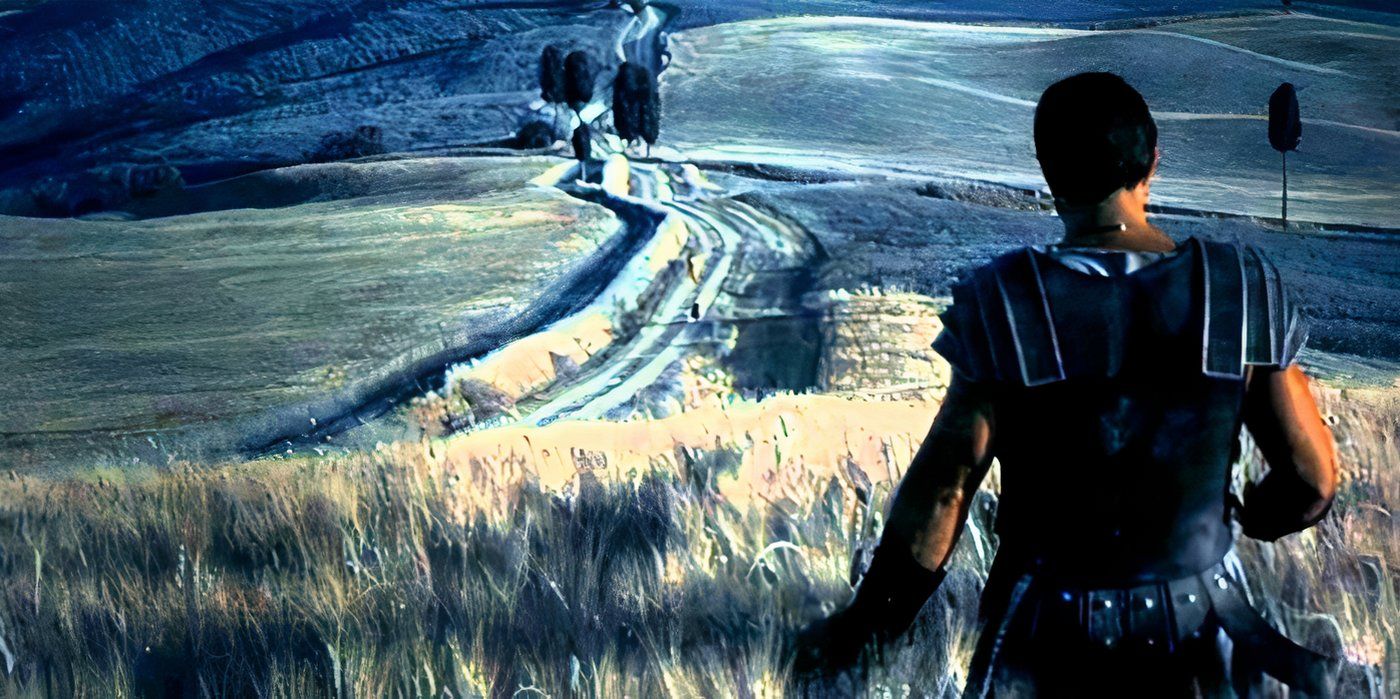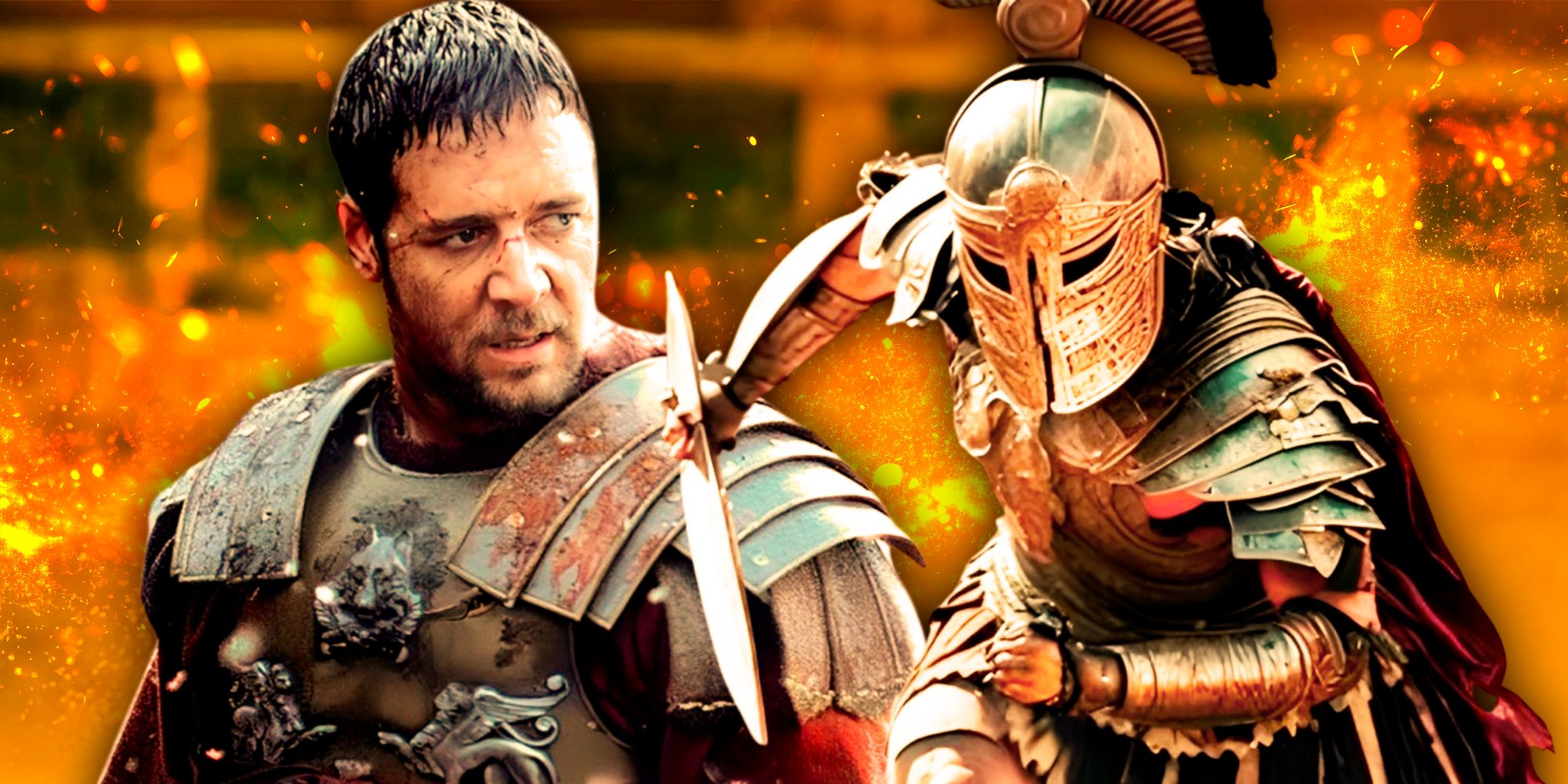
Includes SPOILERS for Gladiator II.
Gladiator 2 is the long-awaited sequel to Ridley Scott’s classic Ancient Roman epic, and there are several references and callbacks to the original. The idea of a Gladiator the sequel after more than two decades may have come as a shock, given the large amount of time since the original. But Ridley Scott got the band back together, or at least a new iteration of Gladiator cast worthy of the 2000 Best Film winner.
The new film makes a concerted effort to honor the original’s ideas and characters with countless quotes, Easter eggs, and references. The lives of Marcus Aurelius (Richard Harris) and Maximus Decimus Meridius (Russell Crowe) left a profound impact on Rome when events begin in sequence. Their legacies continue to live on and influence characters such as Acácio (Pedro Pascal) and Lucilla (Connie Nielsen), paving the way for Lúcio (Paul Mescal) to become Rome’s new hero in Gladiator 2 end.
13
Gladiator 2 opening credits
Gladiator 2’s opening credits show events from the original film
Gladiator 2 the most obvious reference to the original film is in its opening montage. As the title card and opening credits are introduced, audiences see iconic scenes from the original film in animated form. This includes moments like Commodus’ thumbs up, the tiger fight, and the iconic “My name is…” quote.
It’s a nice way to reminisce about old material without having to replay those scenes directly, and it allows the nostalgia to start flowing as the film begins. After the credits, Gladiator 2 opens with text cards that explain the current state of Rome under emperors Caracalla (Fred Hechinger) and Geta (Joseph Quinn). This is reminiscent of the first film, which opened with similar exposition.
12
“What do we do in life…”
Maximus’ battle speech is quoted in Gladiator 2
All over Gladiator 2Lucius befriends a doctor named Ravi (Alexander Karim), who becomes an invaluable ally and loyal supporter. After his first gladiatorial fight, Lucius has a wound on his arm that needs to be healed and he has a brief dialogue with Ravi, who states the classic phrase, “What we do in life echoes in eternity.” Lucius mentions that he recognizes the phrase from somewhere.
Maximus made this quote in the opening war sequence in the original Gladiator film. As he leads his cavalry into the forest to outflank his opponent, he gives a speech to motivate his men. It is a moment that deserves to be mentioned among the best battle speeches in cinema, demonstrating Máximo as a respected leader among his troops. The line is later immortalized in its shrine in the Colosseum.
11
His name was Maximus Decimus Meridius
Lucilla quotes Maximus’ iconic line
One of the biggest stories revealed in Gladiator 2 is that Maximus is actually Lucius’ father. In the first film, it is implied that Maximus and Lucilla have some past romantic history, but it is never explored in detail. In a Gladiator 2 scene where Lucilla comes face to face with her adult son for the first time, she states: “His name was Maximus Tenth Meridius“, to explain who his father was.
The line is delivered in a particular way that takes us back to the first film, in iconic scene where Maximus reveals his face and name to Commodus in the arena. It is one of the many lines that reach the Gladiator sequence in a somewhat strange way, but ultimately works to remind Lucius where he comes from.
10
Gladiator 2 reuses Hans Zimmer’s music queues
Gladiator 2 has a different composer, but uses music from the original
For any movie fan who loves epic soundtracks, Gladiator is probably one that enters the rotation every now and then. The original film was scored by Hans Zimmer and Lisa Gerrard, who created iconic tracks like “Now We Are Free.” In the 2024 sequel, composer Harry Gregson-Williams was brought in to replace them, although its soundtrack is consistent with the original.
Gladiator 2 reuses several musical lines from the original film. Most notably in the film’s final sequence when Lucius returns to the arena to pay his respects to Maximus, “Now We Are Free” plays in the backgroundharking back to the end of the first film.
9
The dream that was Rome
The influence of Marcus Aurelius still prevails
In addition to Maximus, the real-life Roman emperor and character from the first film, Marcus Aurelius, is mentioned several times in the sequel. Marco Aurélio was Lucila’s father, which makes him Lúcio’s grandfather. He dies at the beginning of the first film, but your ideals for “the dream that was Rome“survive after him and continue to be the main motivation for Lucila, Acácio and, eventually, Lúcio.
In the first film, Marco Aurélio spoke of the dream, a phrase later repeated by Máximo. Rome’s dream is essentially an ideal that the ancient civilization could become a utopia for the world, where all people could have a fair chance to survive and prosper. The version of Rome seen in the film, ruled by corrupt tyrants, is counterintuitive.
8
Lucius rubs his hands in the sand
Lucius imitates Maximus’ pre-fight ritual
When Lúcio enters the Colosseum to fight his gladiator games, facing a man riding a rhinoceros, he catches Lucilla’s attention by lowering his hands in the sand. He rubs his hands in the dirt and sand on the arena floor, preparing for the encounter, imitating an action he saw from Maximus in the first film.
In doing so, both characters are symbolically connected to their deceased wives.
Something that Máximo and Lúcio share is that they are both farmers and the gesture of lowering their hands in the sand is being one with the land. In doing so, both characters are symbolically linked to their deceased wives, who continue to be the driving forces of their motivation, pushing them towards revenge.
7
Maximum Sanctuary in the Colosseum
Gladiators built a shrine to Maximus
The story of Maximus Decimus Meridius lived on long after the original character’s death, passing into the legends of the arena. Ravi was a gladiator after Maximus’ death and explains that in his time Maximus’ story was often told and publicized. The story disappeared 15 years later when Lucius returned to Rome, but there is still a shrine beneath the Colosseum in honor of Maximus.
The sanctuary contains Maximus’ original set of armor, his gladius sword, and the “What do we do in life…” quote. This shows the camaraderie among the gladiators instilled by Maximus that his fellow fighters would have left it behind in his name.
6
Lucius wears Maximus’ armor in the climax
Lucius gears up in his father’s armor
After discovering Maximus’ armor in the sanctuary and deciding to embrace his destiny after Acácio’s death, Lucius dons Maximus’ armor. for their final confrontation. The final battle of the Colosseum Gladiator 2 sees him trying to save his mother, who has been declared a traitor by Caracalla and Macrinus. Lucius must face the praetorian guard in the arena to save her, essentially guaranteeing their deaths.
Lucius tricks Macrinus into freeing his fellow gladiators who have become loyal to him, and they help him win the battle, causing the Colosseum to erupt into chaos. Despite wearing his father’s armor, Macrinus manages to kill Lucilla before fleeing the arena.
5
“Strength and Honor”
The gladiators sing “Strength and Honor” before the climax
Other Gladiator quote that appears in the sequence on several occasions is “Strength and honor.” It’s a phrase that Maximus repeats to his soldiers throughout the original film to remind them of the true virtues of the Roman armyand it’s actually a phrase that Russell Crowe invented for the film.
When wearing Maximus’ armor, he leads his men into the final battle and uses “Strength and honor” as its slogan.
The line is repeated by Lucilla and eventually Lucius, in Gladiator 2. When wearing Maximus’ armor, he leads his men into the final battle and uses “Strength and honor” as their slogan. The gladiators then chant the phrase in response, pumping them up for the climactic confrontation.
4
Tiger caged in the Colosseum
A reminder of the tiger fight from the original film
One of the briefest and easiest to miss Easter eggs in Gladiator 2 shows a tiger caged under the Colosseum just before the final fight. This is a throwback to the tiger fight from the original film, where Maximus was forced to fight around several tigers bound by chains, eventually killing one of them..
Gladiator 2 it has some intense animal fights to match the tiger from the original. The first arena match sees Lucius and his companions face off against some terrifying rabid monkeys. Later, in the Colosseum, they have to fight a rhino, and then the naval battle involves sharks swimming under the opposing boats.
3
“In this life or the next”
Lucius repeats Maximus’ classic line
In Maximus’ confrontation with Commodus in the original Gladiator film, he openly challenges the emperor in front of the Colosseum crowd with a devastating threat. After unmasking himself and declaring his name, Maximus claims he will have his revenge”in this life or the next.” The phrase is partially repeated by Lucius in the sequence.
When speaking to Macrino after he decided not to kill Acácio in the arena, Lucius says: “I will never be your instrument, in this life or the next.” Instead of executing the man responsible for his wife’s death, Lucius decides to defy Macrinus, refusing to do his duty. Defiance against tyranny remains a crucial aspect of Maximus and Lucius as characters.
2
Two gladiator actors return for the sequel
Connie Nielsen and Derek Jacobi reprise their roles
Connie Nielsen is easy to spot, returning as Lucilla for the highly anticipated Gladiator 2 sequence. She is the most prominent member of the original film’s cast, and her first scene reveals a twist: she has remarried General Acacius. The pair work together to plot against the twin emperors, and they are joined by another alumnus from the original film.
Derek Jacobi reprises his role as 2000s Senator Gracchus Gladiator. He is a senator who defies the stereotype of corruption by supporting Marcus Aurelius’s dream of a better Rome and remains loyal to Lucilla throughout the sequence.
1
The hand in the wheat field
Gladiator 2 ends with a tribute to Maximus
The first Gladiator ends with a bittersweet moment, when Maximus dies in his fight against the corrupt Emperor Commodus. However, before his death, Maximus fulfills his desire for revenge, and the film ends with him passing through a symbolic wheat field, implying that he is moving on to the afterlife with his murdered wife and son.
Gladiator 2 the ending is a direct homage to this scene, showing Lucius returning to the arena and kicking up sand in his hand once again. Fifteen years later, Lúcio fulfilled his father and grandfather’s mission, uniting a stronger Rome, and the original film’s wheat field suggests that Maximus’s hand still has influence in the world.
